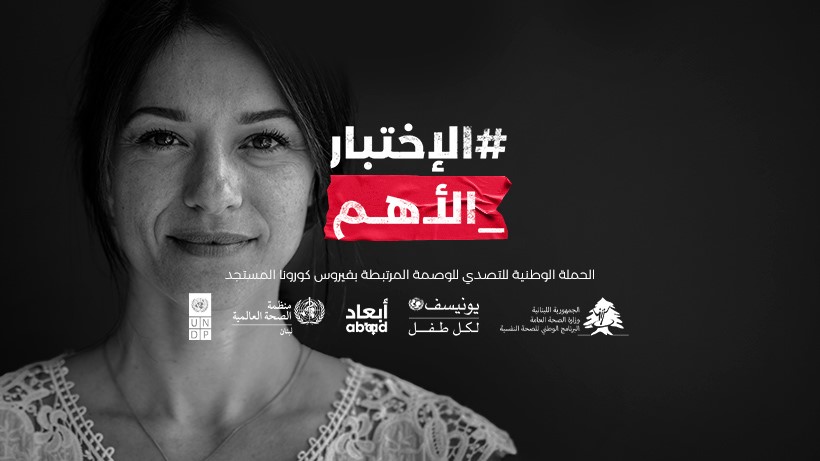
Introduction
The National Mental Health Programme at the Ministry of Public Health in collaboration with the World Health Organization (WHO) and the United Nations International Children’s Emergency Fund (UNICEF) developed a national action plan to address the mental health and psychosocial support aspects of the COVID-19 pandemic in Lebanon for all people living in the country, including refugees and displaced populations. The plan is aligned with the IASC briefing note on the mental health and psychosocial support aspects of COVID-19 and the country’s national mental health strategy. The plan has four main goals.
Promote mental health and mitigate COVID-related stressors, including stigma and discrimination.
Provide mental health support to people in quarantine and their families, whether in hospitals or at home.
Support the mental health of healthcare workers and first responders.
Ensure continuity of mental health care for people with mental health conditions.
Remote mental health and psychosocial support services
The National Emotional Support and Suicide Prevention Hotline (Embrace Lifeline), operating since 2018, provides phone-based emotional support, including support to callers experiencing emotional distress linked to COVID-19. The hotline (number: 1564) operates daily from 12:00 p.m. to 5.30 a.m. Trained volunteer operators provide systematic suicide risk assessment, emotional support, collaborative problem-solving and orientation to services.
The Ministry of Public Health integrated mental health-related questions into its online survey for people in home quarantine. Based on their responses, the Ministry provided mental health support for these people through phone calls. It also provided main public hospitals with child-friendly kits and cognitive stimulation games, such as sudoku and crosswords.
The Ministry also developed a simple checklist for use by nurses to support them in taking care of patients’ mental health while in quarantine. Nurses working in public hospitals with COVID-19 wards were trained on this checklist. Patients in COVID-19 wards requesting or identified as in need of mental health support were referred by these nurses to the mental health support services provided by the National Mental Health Programme. Support groups for nurses were also set up and are being handled by specialized mental health professionals at Rafiq Hariri University Hospital, which has the largest COVID-19 ward in the country.
Education and awareness-raising
The Ministry of Public Health integrated advice for adults and children on coping with stress into its WhatsApp COVID-19 chatbot and online self-assessment tool. It also developed and disseminated leaflets on coping with stress during quarantine and self-isolation to different target groups, including public hospitals that have COVID-19 wards, community isolation centres, and primary health care centres. The Ministry also ran a social media campaign targeting different audience groups on coping with the mental health consequences of the pandemic and movement restrictions. Additionally, some of the awareness and educational materials were translated into sign language, and the most common languages spoken by the migrant community in Lebanon.
The National Mental Health Programme at the Ministry of Public Health in collaboration with WHO, UNICEF, the United Nations Development Fund (UNDP), and Abaad launched a national campaign to address stigma related to COVID-19. The campaign was broadcast on TV and radio, and posted on billboards and social media. It also engaged media professionals, celebrities, opinion leaders, municipalities, and the public to amplify messages of hope to people affected by COVID-19, and local stories of solidarity.
The National Mental Health Programme at the Ministry of Public Health in collaboration with WHO and UNICEF launched another national campaign but this one focused on youth and supporting their mental health needs in times of uncertainty. The Ministry and its partners created an 8-episode Zoom show called #HowRU. The show was hosted by youth and they discussed different topics related to mental health.
Service continuity
The National Mental Health Programme at the Ministry of Public Health is scaling up its national roster of mental health professionals to meet the growing need for mental health support among people with COVID-19 (whether in home or hospital quarantine), and healthcare workers. Additionally, most mental health service provision continued remotely, or was provided through primary healthcare and community mental health centres, and nongovernmental organizations. As for medications, those were provided at the level of primary healthcare and community mental health centres, with support from WHO. Moreover, the Ministry of Public Health requested all hospitals with a mental health ward to continue admitting people requiring urgent care.
Conclusion
There is a growing need for mental health and psychosocial support services from different groups in Lebanon during these uncertain times of COVID-19. The National Mental Health Programme at the Ministry of Public Health in collaboration with various partners, including WHO has taken steps to ensure that these services are available to and continue for everyone, including refugees and displaced populations. Services are being provided in-person and remotely, as needed, and are being scaled up to ensure their timeliness and continuity throughout the pandemic.
Related links
5 steps to cope with the stress linked to COVID-19 (Arabic)
5 tips for managers to support the mental health of their teams during this period (Arabic)
5 tips to take care of older adults’ mental health during COVID-19 outbreak (Arabic)
5 tips to take care of your mental health while working from home during COVID-19 (Arabic)
Action plan: MHPSS response to the COVID-19 outbreak in Lebanon
APA PsycNet: Using COVID-19 responses to help strengthen the mental health system in Lebanon
Checklist for nurses for taking care of the mental health of persons in quarantine
Leaflet: 7 effective self-care tips on coping with emotional distress during quarantine
Let’s be kind, together we can fight COVID-19 (Arabic)
Let's stand by all health workers (Arabic)
MHIN Blog: What can be gained? Lebanon’s national MHPSS response during and beyond COVID-19
National campaign on youth mental health in times of uncertainty
National campaign to address stigma related to COVID-19
Poster: Here are 7 effective self-care tips on coping with emotional distress during quarantine (Arabic)
What role can the media play to decrease stigma during the COVID-19 outbreak in Lebanon? Tip sheet for media professionals (Arabic)


